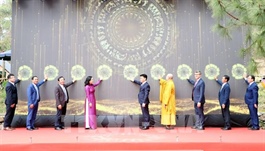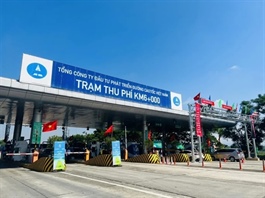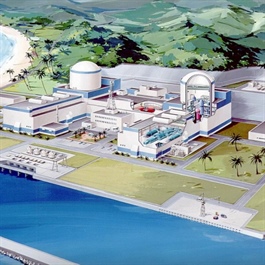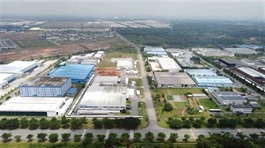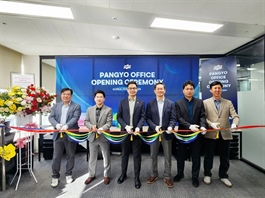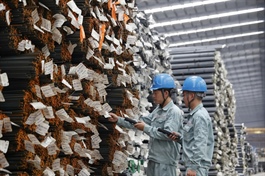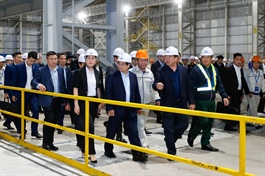Businesses must take lead in science technology and innovation
Businesses must take lead in science technology and innovation
Minister of Information and Communications Nguyen Manh Hung has emphasised the role of corporations in leading and developing science, technology, innovation, and digital transformation.
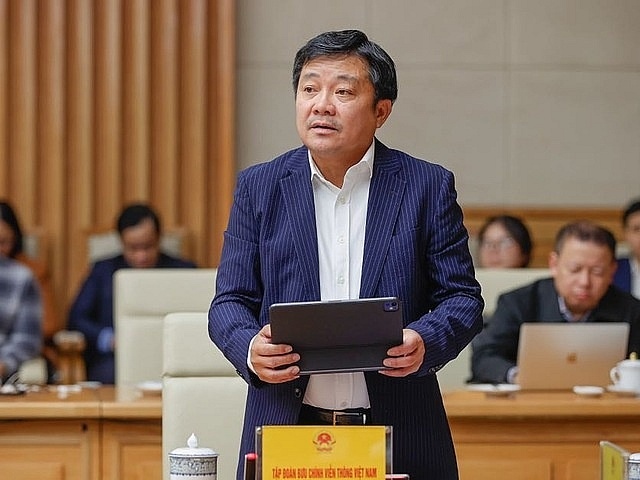
Minister of Information and Communications Nguyen Manh Hung |
At a conference on science, technology, innovation, and high-quality human resources held at the Government Office headquarters in Hanoi on February 11, Minister of Information and Communications Nguyen Manh Hung emphasised the need for the state to delegate major projects, place orders, and assign tasks to businesses.
"Major projects can drive the growth of Vietnamese businesses. If they lack sufficient resources, they will hire foreign expertise. This is preferable to allowing foreign companies to take on domestic projects while employing Vietnamese workers," he said.
"Large enterprises must take on national responsibilities, master strategic technologies, and lead key national digital transformation initiatives. This is both a duty and an opportunity for national technology firms to develop into major Vietnamese technology enterprises," Minister Hung added.
Resolution No.57-NQ/TW of the Politburo aims to establish five major digital technology corporations, on par with global counterparts, by 2025.
Furthermore, large enterprises should lead in technology adoption and digital transformation, setting an example for other businesses and fostering a nationwide wave of scientific and technological advancement.
"Large corporations should increase investment in IT and digitalisation to contribute to GDP growth, enhance labour productivity, improve corporate governance, and boost competitiveness. Increased spending in these areas will also expand the market for Vietnamese technology enterprises, achieving multiple objectives with a single approach," Minister Hung said. "These corporations must contribute to GDP growth exceeding 7 per cent."
He also urged the country’s leading trade and service corporations to transition into integrated technology, industrial, trade, and service enterprises. He stressed that without a focus on technology and industry, Vietnam will struggle to escape the middle-income trap and achieve high-income status. "If these enterprises continue to focus solely on trade and services, breaking through to the next level of economic development will be challenging," he said.
Additionally, large technology enterprises must expand internationally to enhance competitiveness and demonstrate their capabilities.
"Vietnam cannot become a developed country without engaging in global competition. Competing worldwide requires leveraging science, technology, innovation, and digital transformation. This approach will also accelerate the development of national enterprises in these key sectors," the minister said. "If we do not conquer the world, the world will come here to conquer Vietnam, and there will be no more Vietnamese enterprises."

Huynh Quang Liem, CEO of VNPT |
Huynh Quang Liem, CEO of VNPT (Vietnam Posts and Telecommunications Corporation) said that they had poured money into AI for the last five years. With a team of about 200 engineers, VNPT has confirmed its role in developing high technologies, with some products being listed in the top 10 of the world and in Vietnam.
After Resolution 57 of the Politburo and recent resolutions of the government, VNPT set several major targets and national tasks on AI.
VNPT has identified four important pillars: human resources, infrastructure, data and technology. The company will announce a 100 per cent open AI platform made in Vietnam, aiming for rapid, sustainable, autonomous development of AI and enough competitiveness with businesses around the world and maximising the capacity of Vietnamese people; as well as updating and mastering international sci-tech trends.
"VNPT will become one of the leading corporations in Vietnam and well-known at the regional and international levels that can export technology and AI products. These are specific goals," Liem said
To implement its targets, the right mechanisms and resources are critical, especially personnel and infrastructure. Thereby, VNPT will pour many resources into infrastructural development, as well as attracting thousands of employees over one to two years. This is also a challenge for the mechanism, for investment in sci-tech resources, and innovation of a state-owned enterprise.
"VNPT hopes so and is ready to implement the government's major problems in digital technology and AI. These major problems will help us solve and replicate for other applications," he said. "By overcoming the challenges of resources, time and products, we will achieve the common goals of developing the digital economy, digital society, integrating sci-tech with the world, and building an ecosystem of a large-scale infrastructure enterprise."
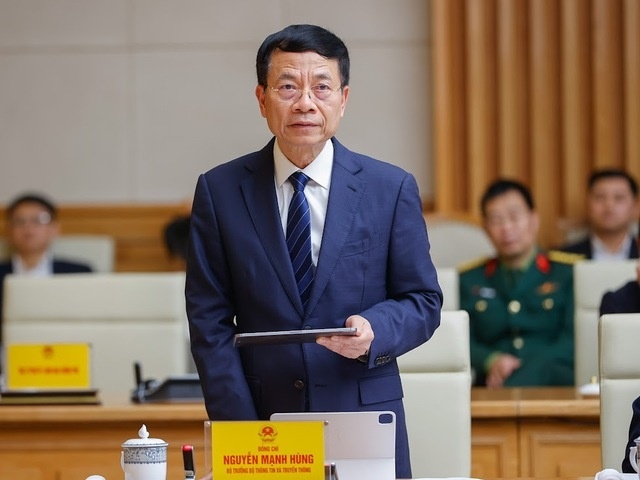
Tao Duc Thang, chairman and CEO of Viettel |
Tao Duc Thang, chairman and CEO of Viettel mentioned the National Foundation for Science and Technology Development.
"This should not only be spent on sci-tech activities but also serve the merger and acquisition of startups. The same suggestion should be applied for funds for national defence and security, innovation funds, and start-ups. A fund should do many different things, and the way of doing things should be easier and more favourable for businesses," he said



